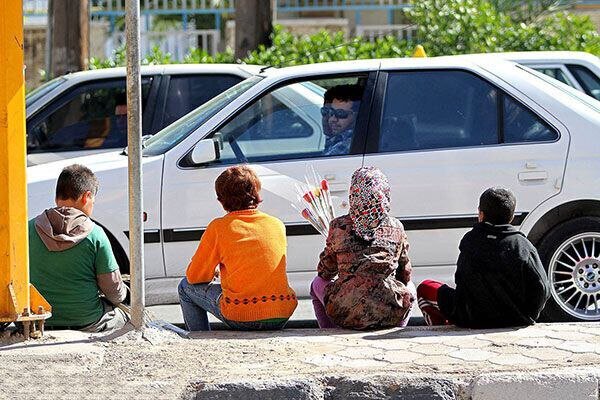TEHRAN – Following the implementation of a national campaign to organize and support children who worked in child labour in Tehran, more than 300 children have been identified and sent back to their home country with their families, welfare organisation officials say.
Two months after the campaign was implemented, the survey results show that approximately 85% of the identified children were fraudulent immigrants.
The campaign aims to convey the message that child labour is a criminal offence and that children are not responsible for financially supporting families. He noted that parents who are less troubled have an obligation to be aware of the exploitation of their children in all forms of work.
Officials went on to say that most of these foreign refugee families are poor and vulnerable. Therefore, a new support program is being developed in collaboration with the United Nations Children’s Fund (UNICEF) to address child labour as revealed on June 12th, World Day against Child Labour.
Under this initiative, families who withdraw children from street labor and send them back to school are eligible for conditional assistance.
Over 6 million Afghan citizens living in Iran
According to the head of the national immigration agency, Nader Yar-Ahmadi, a total of 6.1 million approved and fraudulent Afghan citizens live in the country.
Iran hosts one of the world’s largest and longest-running refugee groups, most of which are Afghan refugees.
Approximately 2.1 million immigrants have been documented and information on two other million registered, with the rest being illegally entering the country, Isna cited Yal Ahmadi.
Over the past Iranian calendar years (March 2024 – March 2025), more than a million undocumented citizens have been deported to their country, of which 40% have voluntarily returned, officials noted.
Women and children make up the majority of unauthorized foreigners who work in the country and may not pose a threat. However, he added that Iran wants them to return to their country due to the high costs and insufficient international aid (such as food, transport, fuel, etc.) imposed by the country’s refugees (food, transport, fuel, etc.).
At a recent meeting between Afghanistan’s deputy refugee minister and the repatriation minister and the South Asian director at Iran’s Foreign Ministry, the Taliban called for a joint meeting with Tehran to address the situation of Afghan immigration.
According to a report on Saturday, Afghanistan’s representative refugee minister, Morawi Abdul Kabir, met with Mohammad Reza Bahrami and his companion delegation in Kabul.
During the meeting, Abdul Kabir highlighted the deep historic ties between the two countries and expressed his appreciation for Iran’s decades of hospitality for Afghan immigrants. He also called for continued Islamic compassion in Iran’s treatment of these migrants.
Taliban officials noted that Kabul is implementing a plan for the voluntary return of Afghan refugees, revealing that 46 residential towns are currently under construction and are dealing with returnees.
In response, Balami recognized Iran’s presence in the presence of millions of Afghan citizens. Many of them lack legal documents. He emphasized the need for greater cooperation between the two countries to address the ongoing challenges and expanded the official invitation to the representative minister to visit Tehran.
Iranian diplomats also welcomed the Afghan housing initiative and described it as a positive step to promote the voluntary return of immigrants to their homelands.
mt/mg

